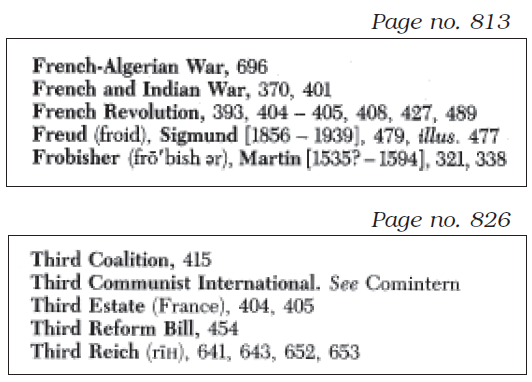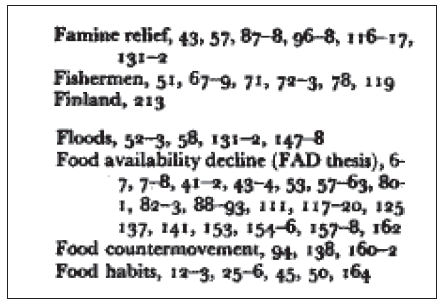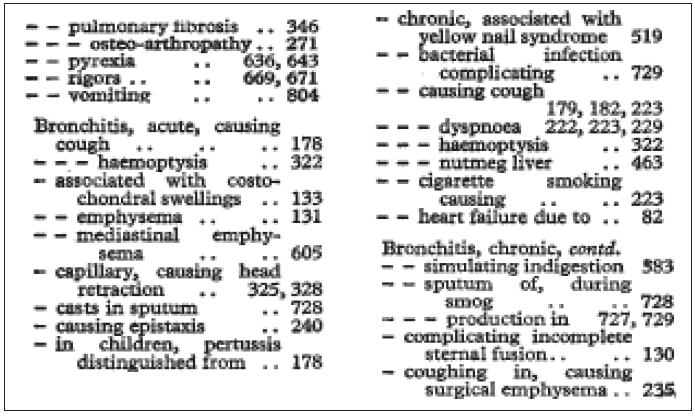NCERT Solutions Class 9 English (Beehive (Prose))
The NCERT Solutions in English Language for Class 9 English (Beehive (Prose)) Chapter – 9 The Bond of Love has been provided here to help the students in solving the questions from this exercise.
Chapter – 9 (The Bond of Love)
Thinking about the Text
I. Given in the box are some headings. Find the relevant paragraphs in the text to match the headings.
| An Orphaned Cub; Bruno’s Food-chart; An Accidental Case of Poisoning; Playful Baba; Pain of Separation; Joy of Reunion; A Request to the Zoo; An Island in the Courtyard |
Answer – An Orphaned Cub – Paragraph 3;
Bruno’s Food-chart – Paragraph 6;
An Accidental Case of Poisoning – Paragraph 8;
Playful Baba – Paragraph 12;
Pain of Separation – Paragraph 14;
Joy of Reunion – Paragraph 16;
A Request to the Zoo – Paragraph 18;
An Island in the Courtyard – Paragraph 21
II. Answer the following questions
1. “I got him for her by accident.”
(i) Who says this?
(ii) Who do ‘him’ and ‘her’ refer to?
(iii) What is the incident referred to here?
Answer – “I got him for her by accident.”
(i) The narrator says the given line.
(ii) ‘Him’ refers to the baby sloth bear and ‘her’ refers to the narrator’s wife.
(iii) The incident is about how the narrator got the baby sloth bear to his house.
2. “He stood on his head in delight.”
(i) Who does ‘he’ refer to?
(ii) Why was he delighted?
Answer – “He stood on his head in delight.”
(i) ‘He’ refers to the bear, Bruno.
(ii) Bruno was delighted to see the narrator’s wife after three months of separation.
3. “We all missed him greatly: but in a sense we were relieved.”
(i) Who does ‘we all’ stand for?
(ii) Who did they miss?
(iii) Why did they nevertheless feel relieved?
Answer – “We all missed him greatly: but in a sense we were relieved.”
(i) ‘We all’ stands for the narrator, his wife and his son.
(ii) They missed Bruno (Baba).
(iii) They felt relieved because it was becoming difficult to keep the bear at home due to his growing size.
III. Answer the following questions in 30 to 40 words each.
1. On two occasions, Bruno ate/drank something that should not be eaten/drunk. What happened to him on these occasions?
Answer – Bruno ate some poison-barium carbonate He also vomited and breathed heavily, but was later cured. In another incident, he drank nearly a gallon of old engine oil. Fortunately, he remained unaffected.meant for the rats, which paralysed and weakened him.
2. Was Bruno a loving and playful pet? Why, then, did he have to be sent away?
Answer – Yes, Bruno was a loving and playful pet. Everybody in the family was attached to it, especially the narrator’s wife. It had to be sent away to a zoo because it was getting too big to be kept at home.
3. How was the problem of what to do with Bruno finally solved?
Answer – Bruno was not happy at the zoo. Seeing its condition and its happiness at seeing the narrator’s wife, Bruno was allowed to go back to Bangalore. There, an island was made for the bear, keeping all its needs in mind.
Thinking about Language
I.
1. Find these words in the lesson. They all have ie or ei in them.
| f__ld; ingred__nts; h__ght; misch__vous; fr__nds; __ghty-seven; rel__ved; p__ce |
Answer –
| field; ingredients; height; mischievous; friends; eighty-seven; relieved; piece |
2. Now, here are some more words. Complete them with ei or ie. Consult a dictionary if necessary.
| bel__ve; rec__ve; w__rd; l__sure; s__ze; w__ght; r__gn; for__gn; gr__f; p__rce |
Answer –
| believe; receive; weird; leisure; seize; weight; reign; foreign; grief; pierce |
II. Here are some words with silent letters. Learn their spelling. Your teacher will dictate these words to you. Write them down and underline the silent letters.
| knock | wrestle | walk | wrong |
| knee | half | honest | daughter |
| hours | return | hornet | calm |
| could | sign | island | button |
Answer –
| Knock | Wrestle | Walk | Wrong |
| Knee | Half | Honest | Daughter |
| Hours | Return | Hornet | Calm |
| Could | Sign | Island | Button |
III. How to look at an Index
An index is a list of names or topics that are to be found in a book. It is a list arranged in alphabetical order at the end of a book.
The following paragraph shows that the doctor is consulting the index of a medical book to find out which injection is appropriate for Bruno.
“Out came his medical books, and a feverish reference to index began:
What poison did you say, sir?” “Barium carbonate”. “Ah yes—B—Ba— Barium Salts—Ah! Barium carbonate! Symptoms—paralysis— treatment—injections of … Just a minute, sir. I’ll bring my syringe and the medicine.”
1. You have read about the French Revolution and you want to know more about the Third Estate in the context of the French Revolution. You can refer to the index of the book Living World History by T. Walter Wallbank and Arnold Schrier:

On which pages in this book will you find information about the French Revolution and the Third Estate?
Answer – The French Revolution: 393, 404-405, 408, 427, 489
Third Estate: 404, 405
2. To know what ‘Food Security’ and ‘Minimum Support Price’ mean in the context of the economic growth of a country you can go to the subject index given below from Poverty and Famines — An Essay on Entitlement and Deprivation by Amartya Sen. Under which heading in the index are you likely to find these topics?

Answer – The heading under which we are likely to find these topics is Famine Relief. Famine relief: 43, 57, 87-8, 96-8, 116-17, 131-2
3. Given below is a portion of an index page from the book, French’s Index of Differential Diagnosis, edited by F. Dudley Hart M.D., F.R.C.P.

Study the entries and find out whether the following topics are discussed in the book.
(i) bronchitis due to cigarette smoking
(ii) heart failure due to bronchitis
(iii) bronchitis in children
Answer –
(i) bronchitis due to cigarette smoking- Yes, it is discussed in the book on page 223.
(ii) heart failure due to bronchitis- Yes, it is discussed in the book on page 82.
(iii) bronchitis in children- Yes, it is discussed in the book on page 178.
IV. 1. The Narrative Present
Notice the incomplete sentences in the following paragraphs. Here the writer is using incomplete sentences in the narration to make the incident more dramatic or immediate. Can you rewrite the paragraph in complete sentences? (You can begin: The vet and I made a dash back to the car. Bruno was still floundering…)
(i) A dash back to the car. Bruno still floundering about on his stumps, but clearly weakening rapidly; some vomiting, heavy breathing, with heaving flanks and gaping mouth.
Hold him, everybody! In goes the hypodermic—Bruno squeals — 10 c.c. of the antidote enters his system without a drop being wasted.
Ten minutes later: condition unchanged! Another 10 c.c injected! Ten minutes later: breathing less stertorous — Bruno can move his arm and legs a little although he cannot stand yet. Thirty minutes later:
Bruno gets up and has a great feed! He looks at us disdainfully, as much as to say, ‘What’s barium carbonate to a big black bear like me?’
Bruno is still eating.
(ii) In the paragraphs above from the story the verbs are in the present tense (eg. hold, goes, etc.). This gives the reader an impression of immediacy. The present tense is often used when we give a commentary on a game (cricket, football, etc.), or tell a story as if it is happening now. It is, therefore, called the narrative present.
You will read more about the present tense in Unit 10.
Answer – The vet doc and I made a dash back to the car. Bruno was still floundering about on his stumps, but clearly weakening rapidly. He was vomiting. He was breathing heavily. His flank was gaping and he was gaping open his mouth.
The vet ordered his assistants, “Hold him, everybody!” Bruno squealed when he was injected with a hypodermic. 10 c.c. of the antidote was injected into his system without a drop being wasted.
Ten minutes later, the condition was still unchanged!
Bruno was then injected with another 10 c.c. of the antidote. After ten minutes, his breathing became less stertorous. Bruno was now able to move his arm and legs a little, although he could not stand yet. Thirty minutes later, Bruno got up and had a great feed! He looked at us disdainfully, as much as to say, ‘What’s barium carbonate to a big black bear like me?’ Bruno was still eating.
2. Adverbs
Find the adverbs in the passage below. (You’ve read about adverbs in Unit 1.)
We thought that everything was over when suddenly a black sloth bear came out panting in the hot sun. Now I will not shoot a sloth bear wantonly but, unfortunately for the poor beast, one of my companions did not feel that way about it, and promptly shot the bear on the spot.
(i) Complete the following sentences, using a suitable adverb ending in –ly.
(a) Rana does her homework ____________.
(b) It rains ____________ in Mumbai in June.
(c) He does his work ____________.
(d) The dog serves his master ____________.
Answer – We thought that everything was over when suddenly a black sloth bear came out panting in the hot sun. Now I will not shoot a sloth bear wantonly but, unfortunately for the poor beast, one of my companions did not feel that way about it, and promptly shot the bear on the spot.
(a) Rana does her homework neatly.
(b) It rains heavily in Mumbai in June.
(c) He does his work diligently.
(d) The dog serves his master obediently.
(ii) Choose the most suitable adverbs or adverbial phrases and complete the following sentences.
(a) We should ____________ get down from a moving train. (never, sometimes, often)
(b) I was ____________ in need of support after my poor performance. (badly, occasionally, sometimes)
(c) Rita met with an accident. The doctor examined her ____________. (suddenly, seriously, immediately)
Answer –
(a) We should never get down from a moving train. (never, sometimes, often)
(b) I was badly in need of support after my poor performance. (badly, occasionally, sometimes)
(c) Rita met with an accident. The doctor examined her immediately. (suddenly, seriously, immediately)
3. Take down the following scrambled version of a story that your teacher will dictate to you, with appropriate punctuation marks. Then, read the scrambled story carefully and try to rewrite it rearranging the incidents.
A grasshopper, who was very hungry, saw her and said, “When did you get the corn? I am dying of hunger.” She wanted to dry them. It was a cold winter’s day, and an ant was bringing out some grains of corn from her home. She had gathered the corn in summer.
“I was singing all day,” answered the grasshopper.
“If you sang all summer,” said the ant, “you can dance all winter.”
“What were you doing?” asked the ant again.
The grasshopper replied, “I was too busy.”
“I collected it in summer,” said the ant. “What were you doing in summer?
Why did you not store some corn?”
Answer – It was a cold winter’s day, and an ant was bringing out some grains of corn from her home. She had gathered the corn in summer. She wanted to dry them.
A grasshopper, who was very hungry, saw her and said, “I am dying of hunger. When did you get the corn?”
“I collected it in summer,” said the ant. “What were you doing in summer? Why did you not store some corn?”
The grasshopper replied, “I was too busy.”
“What were you doing?” asked the ant again.
“I was singing all day,” answered the grasshopper.
“If you sang all summer,” said the ant, “you can dance all winter.”

Leave a Reply